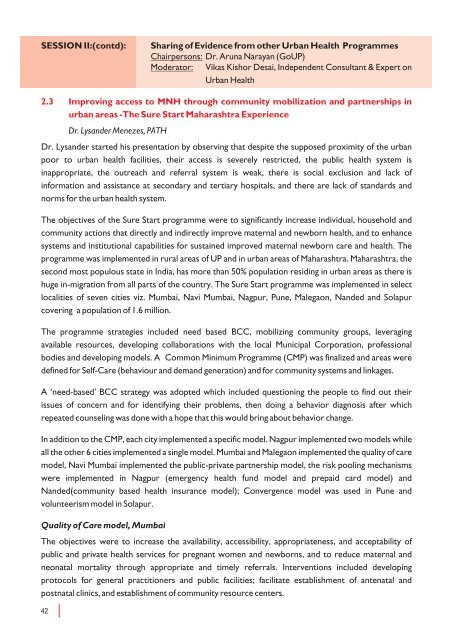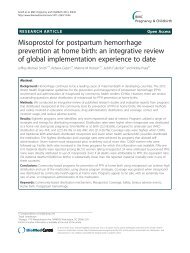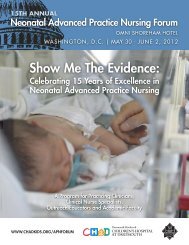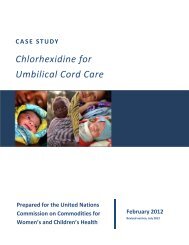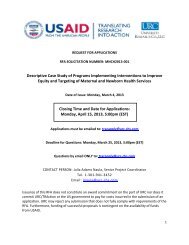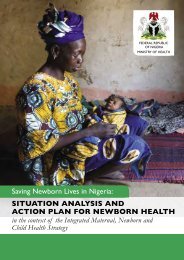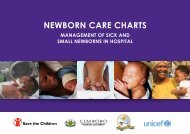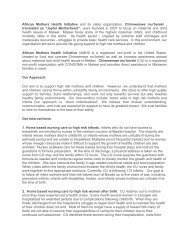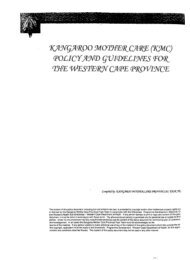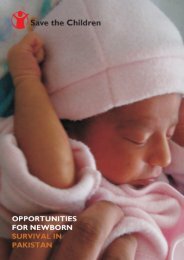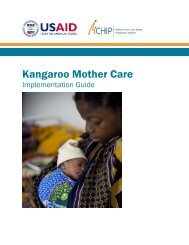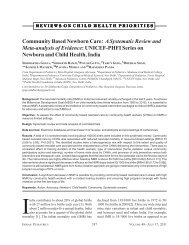Download Resource - Healthy Newborn Network
Download Resource - Healthy Newborn Network
Download Resource - Healthy Newborn Network
You also want an ePaper? Increase the reach of your titles
YUMPU automatically turns print PDFs into web optimized ePapers that Google loves.
SESSION II:(contd):Sharing of Evidence from other Urban Health ProgrammesChairpersons: Dr. Aruna Narayan (GoUP)Moderator: Vikas Kishor Desai, Independent Consultant & Expert onUrban Health2.3 Improving access to MNH through community mobilization and partnerships inurban areas -The Sure Start Maharashtra ExperienceDr. Lysander Menezes, PATHDr. Lysander started his presentation by observing that despite the supposed proximity of the urbanpoor to urban health facilities, their access is severely restricted, the public health system isinappropriate, the outreach and referral system is weak, there is social exclusion and lack ofinformation and assistance at secondary and tertiary hospitals, and there are lack of standards andnorms for the urban health system.The objectives of the Sure Start programme were to significantly increase individual, household andcommunity actions that directly and indirectly improve maternal and newborn health, and to enhancesystems and institutional capabilities for sustained improved maternal newborn care and health. Theprogramme was implemented in rural areas of UP and in urban areas of Maharashtra. Maharashtra, thesecond most populous state in India, has more than 50% population residing in urban areas as there ishuge in-migration from all parts of the country. The Sure Start programme was implemented in selectlocalities of seven cities viz. Mumbai, Navi Mumbai, Nagpur, Pune, Malegaon, Nanded and Solapurcovering a population of 1.6 million.The programme strategies included need based BCC, mobilizing community groups, leveragingavailable resources, developing collaborations with the local Municipal Corporation, professionalbodies and developing models. A Common Minimum Programme (CMP) was finalized and areas weredefined for Self-Care (behaviour and demand generation) and for community systems and linkages.A ‘need-based’ BCC strategy was adopted which included questioning the people to find out theirissues of concern and for identifying their problems, then doing a behavior diagnosis after whichrepeated counseling was done with a hope that this would bring about behavior change.In addition to the CMP, each city implemented a specific model. Nagpur implemented two models whileall the other 6 cities implemented a single model. Mumbai and Malegaon implemented the quality of caremodel, Navi Mumbai implemented the public-private partnership model, the risk pooling mechanismswere implemented in Nagpur (emergency health fund model and prepaid card model) andNanded(community based health insurance model); Convergence model was used in Pune andvolunteerism model in Solapur.Quality of Care model, MumbaiThe objectives were to increase the availability, accessibility, appropriateness, and acceptability ofpublic and private health services for pregnant women and newborns, and to reduce maternal andneonatal mortality through appropriate and timely referrals. Interventions included developingprotocols for general practitioners and public facilities; facilitate establishment of antenatal andpostnatal clinics, and establishment of community resource centers.42


